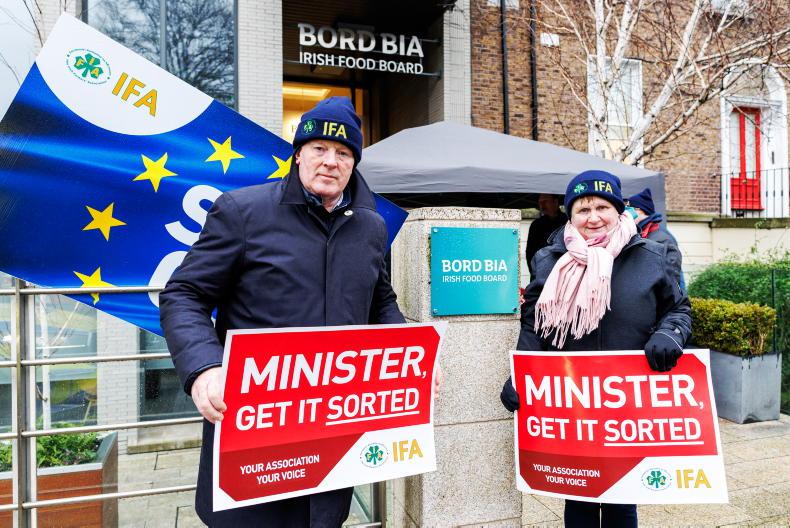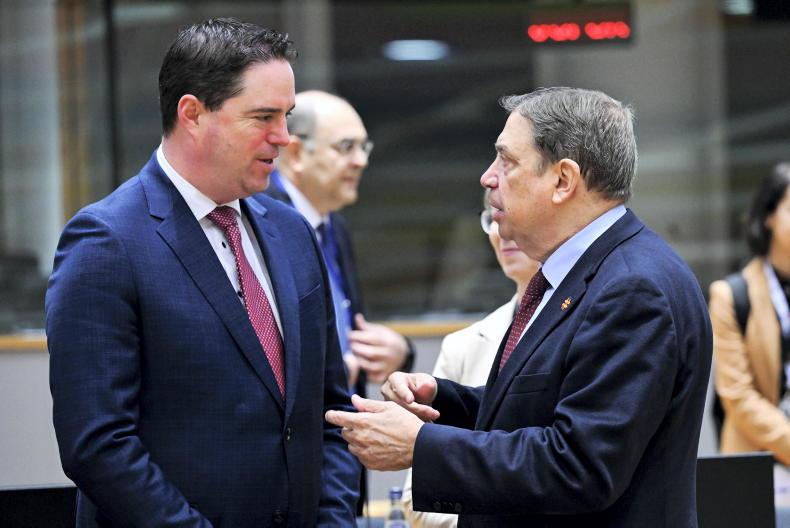In her State of the Union address last week, European Commission president, Ursula von der Leyen, said: “We should aim to complete deals with Australia, Mexico and Mercosur by the end of this year.”
Agreements are already in place with Mexico and Mercosur since 2019, but in the case of Mercosur, the EU are looking to add an extra chapter to tighten down the environmental commitments made by the South American countries – Brazil, Argentina, Uruguay and Paraguay – that make up Mercosur.
Unsurprisingly, the Mercosur countries, while willing to make environment positive statements, are unwilling to commit to anything binding that involves sanctions for noncompliance.
This is where it will get difficult for ratification purposes, not just in the EU institutions, where there has been considerable unease with the Mercosur deal, but in the member states who also have to individually ratify the deal.
Agriculture Minister Charlie McConalogue called for “further clarity on the EU-Mercosur and EU-Australia trade negotiations”, but the reality is that the EU are anxious to wrap up these deals that have been ongoing since 2018, in the case of Australian negotiation, and 2019 since the Mercosur deal was “agreed” originally.
Mercosur will require Irish approval
Of course, the minister and his colleagues in Government will have powerful levers to pull in relation to Mercosur ratification when it comes to member state approval.
Austria is already on record that they will oppose the Mercosur deal, and the French government have been increasingly hostile as parallel to the EU introducing Farm to Fork agriculture; Brazil continued to clear rainforest at an increased rate during president Bolsonaro’s term of office.
It has reduced dramatically this year since president Lula’s election.
The only sector of the Irish economy that is really threatened by the Mercosur deal is beef production.
The deal gives Mercosur an additional 99,000t beef quota for the EU market, increasing competition for Irish exports significantly, at a time when the UK market is open to Australia and New Zealand, through post Brexit trade deals.
Apart from beef, Mercosur will actually be positive for the wider Irish economy and will enhance export opportunities for the pharma and tech sectors, in particular.
Irish beef producers could easily be left to take one for the team by the Irish Government when it comes to ratification.
Aussies holding out
After exceeding their expectations in securing access for beef and sheep meat to the UK market in that negotiation, Australia has increased its ambition for beef and sheep meat access to the EU.
They currently have very limited access – for beef, there is a 3,389t Hilton quota, with 20% tariff-plus shared access to a 4,900t tariff-free quota with Argentina, Canada, New Zealand and Uruguay, and a 5,851t sheep meat quota.
Unsurprisingly, the Mercosur countries, while willing to make environment positive statements, are unwilling to commit to anything binding that involves sanctions for noncompliance
Both of these will increase dramatically, and the usually well-informed Brussels trade publication Agra Facts suggested it could be as high as 30,000t for beef when the negotiation was parked in July.
A deal was thought imminent then, and it would be a surprise if it is not finalised before the end of the year.
Labour champion a ‘new’ Brexit
The British Labour party added the prefix “New” to its name when Tony Blair led them to victory in 1997, but it was quietly dropped when he fell from grace.
However, this week, their current leader Sir Keir Starmer has been advocating that his party will pursue a closer trading relationship with the EU, akin to a “new” Brexit.
Brussels will be exceedingly cool in the scheduled 2025 review of the Trade and Cooperation agreement with the UK, which gives effect to Brexit, to concede anything that looks like the UK cherry-picking benefits of EU membership from outside.
However, one door that seems waiting to be pushed open is for a veterinary agreement.
At a stroke, this would remove the contentious issues with the Windsor Framework and remove a need for Irish exporters to provide health certs whenever the UK enforce full border controls.









SHARING OPTIONS